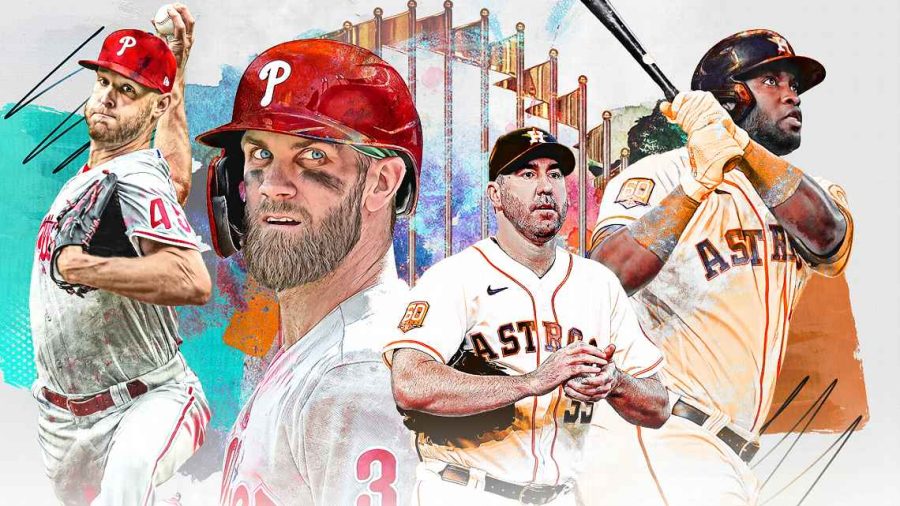MLB Playoff Expansion Encourages Underdog
The Philadelphia Phillies and the Houston Astros are competing in the sixth game of the World Series Nov. 5.
This year, the MLB altered the playoff format of the World Series, expanding the postseason bracket from 10 teams to 12 teams. Six teams from the two leagues: the American League and the National League, made the playoffs. The change came for multiple reasons. One was declining viewership which decreased by 12 percent between 2019–21, leading to a substantial decline in revenue. The MLB also wanted to lower the average viewer’s age, which is currently 57 years old.
In addition, the MLB also expanded the Wild Card Series, which grew from a one-game playoff series to a best-of-three series. In both the American and National League Wild Card Series, the visitors of the first game in their respective series ended up on top, with the Philadelphia Phillies, the Cleveland Guardians, and the Seattle Mariners winning their first two games and the San Diego Padres winning their first and third games.
Broadening the playing field allows the opportunity for more underdog teams. Fans seem to thrive on this story: the team that is expected to lose miraculously pulls out an upset and takes down the expected victors. Nearly all sports movies revolve around the premise of a mismatched yet lovable team defying the odds and coming out on top over the best of the best. Movie watchers enjoy this plot thoroughly, and their feelings are magnified when the underdog story unfolds in professional sports. The story evokes empathy, and fans feel satisfaction when the underdog wins (provided they are not active fans of the other team).
Despite the change to MLB, the American League had no surprises. The Tampa Bay Rays snuck into the playoffs as the sixth seed, but were swept in the first American League Wild Card Series by the third seed Guardians, a team that would’ve automatically been in the Divisional Round in past years. Meanwhile, the fifth seed Mariners swept the fourth seed Toronto Blue Jays, earning themselves a clash with the first seed Houston Astros.
However, expanding the playoffs made a significant impact on the National League Playoffs. In the professional sports world, underdog stories occur with some regularity, but rarely at the magnitude of this year’s playoffs.
In the Wild Card Series, the Padres, the National League’s fifth seed, took down the fourth seed New York Mets before upsetting the first seed Los Angeles Dodgers 3–1 in the Divisional Series.The Phillies earned the sixth seed by just one game over the Milwaukee Brewers and have made the most of their opportunity thus far. The Phillies swept the third seed St. Louis Cardinals in the Wild Card Series before taking down the second seed Atlanta Braves in the Divisional Series and the Padres in the Conference Series. The Phillies lost just one game in each of their last two series, defeating the Braves 3–1 in a best-of-five series and the Padres 4–1 in a best-of-seven series. As of Nov. 4, the Phillies are just two games away from becoming World Champions, although the Astros, last year’s runner-up, are in a 3–2 lead.
Baseball fans are currently tuning in to witness the Phillies’ unlikely ascent to the top of baseball at rates that prove the new changes to the MLB postseason are a success. Over the course of the 2022 playoffs, compared to the 2021 playoffs, the amount of 18 to 34-year-old fans watching rose 22 percent, along with a 9 percent increase in viewership of people 17 and younger, and ratings for the 2022 Divisional Series were up 21 percent from the 2021 Divisional Series, with 3.4 million people on average tuning in. These trends are promising for the MLB and the future of baseball, which relies on young people to carry the fame and legacy of the sport.






